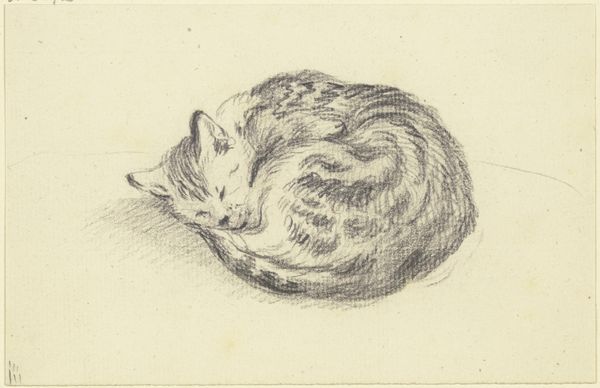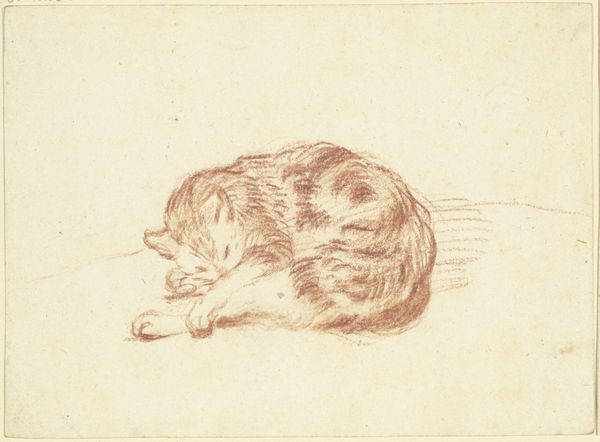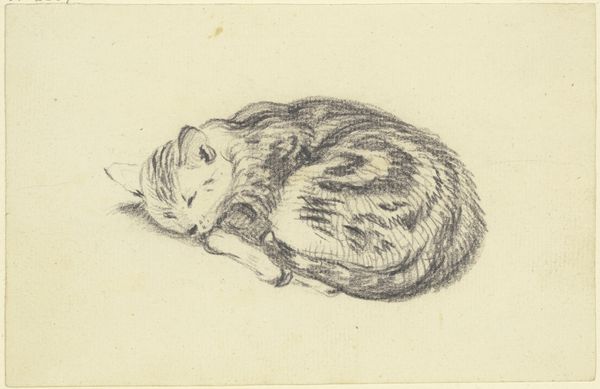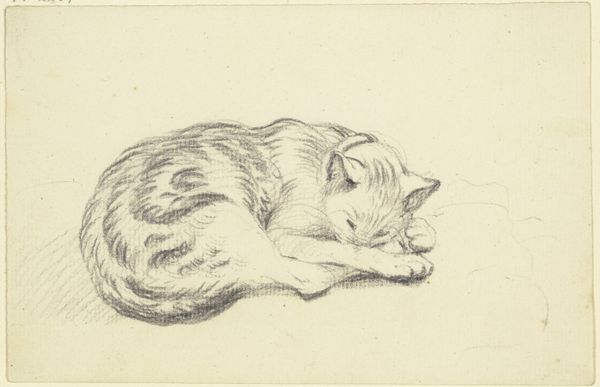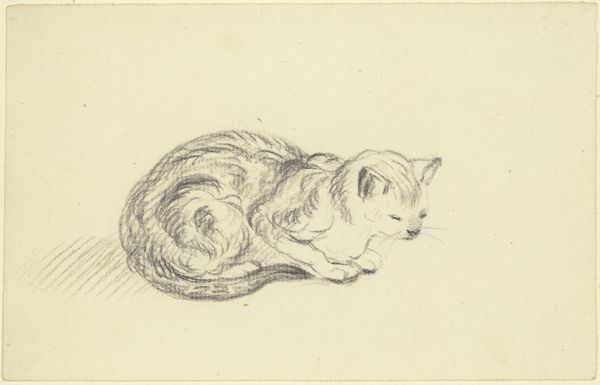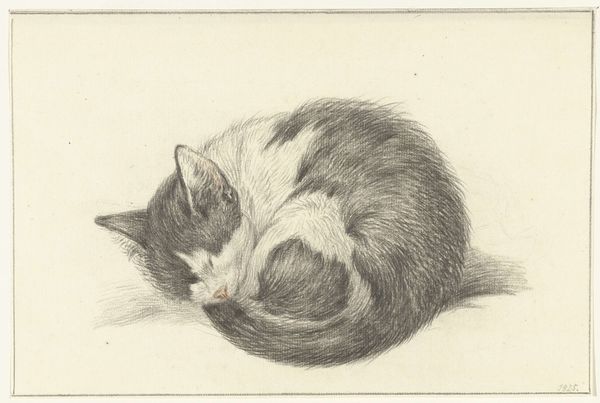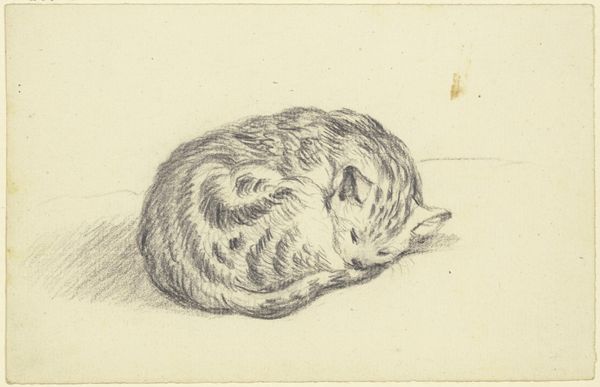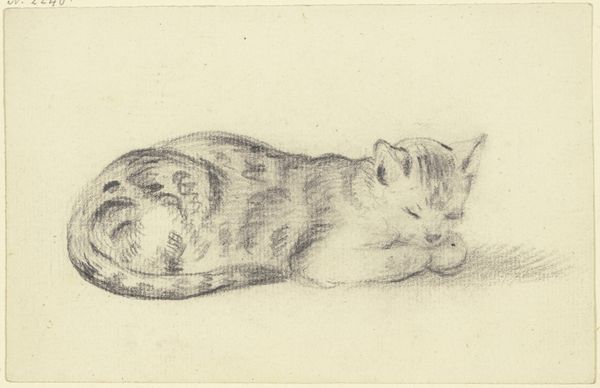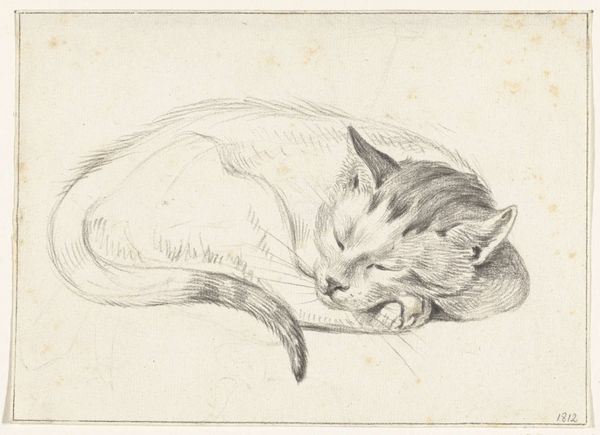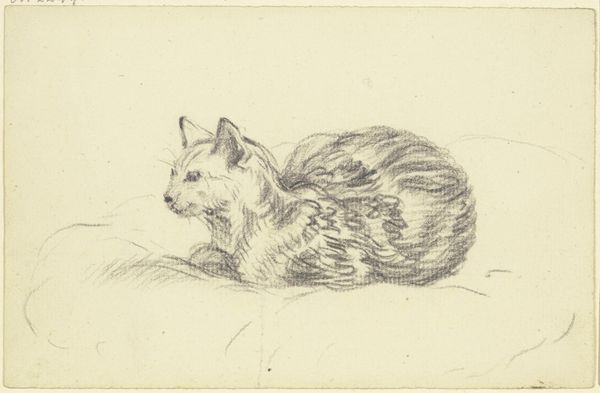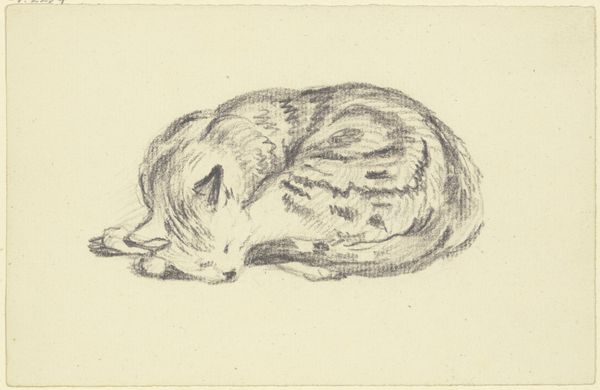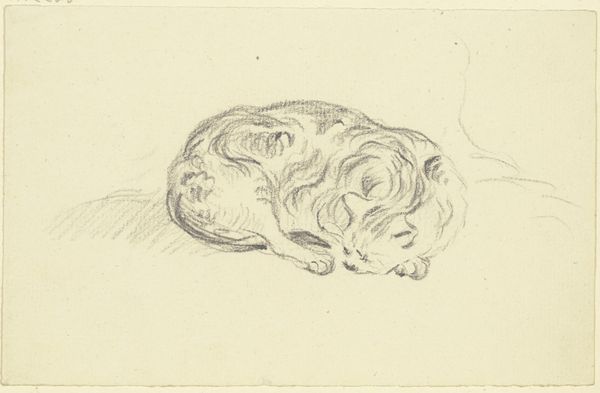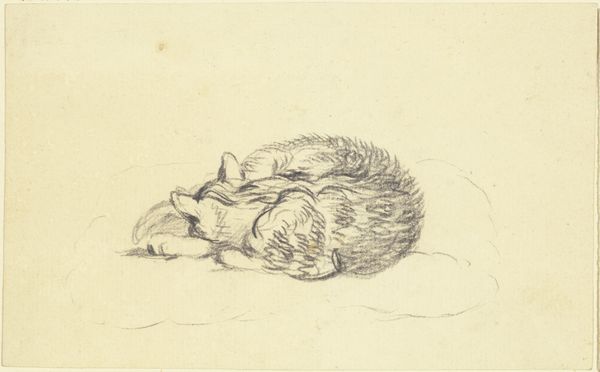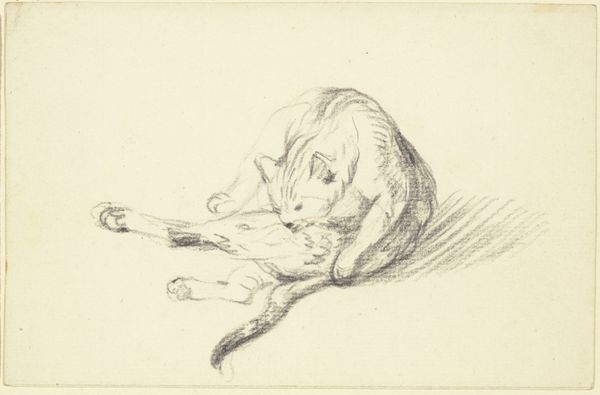
drawing, pencil, chalk, graphite
#
portrait
#
drawing
#
pencil drawing
#
pencil
#
chalk
#
graphite
#
realism
Copyright: Public Domain
Editor: We're looking at a drawing titled "Sleeping Cat," attributed to Friedrich Wilhelm Hirt and housed at the Städel Museum. The piece is crafted with graphite, chalk and pencil. It’s simple, yet something about the curled-up cat is just so peaceful. How do you interpret this work, especially given its simple medium? Curator: What interests me most about this drawing is its accessibility. The choice of everyday materials like pencil and chalk, devoid of colour, moves it away from the elite world of high art of its time and speaks to the emerging middle class and their appreciation for the quotidian. Think about the rise of domesticity in the 19th century - how does an image like this of a humble feline, elevated into a work displayed in a museum, reflect changing social values? Editor: So, the cat isn't just a cat? It represents something more about society at the time? Curator: Exactly! Cats, often associated with the domestic sphere, become symbols of comfort and belonging. The act of sketching a commonplace scene signals a shift in what is considered worthy of artistic representation. How do you see that playing out today? Editor: Well, now that I think about it, we're surrounded by images of our pets. Maybe this drawing, in its own way, initiated that trend! A democratisation of art subjects. Curator: A really interesting connection to make! Looking at its composition also gives a new layer; there's a tenderness in how the artist captured the animal's vulnerability in slumber. Editor: I never considered how political a sleeping cat could be! I see now how it can provide access to a cultural perspective. Curator: It shows the art in everyday life. Art can provide valuable insights if one investigates and studies it within the proper historical and cultural framework.
Comments
No comments
Be the first to comment and join the conversation on the ultimate creative platform.
